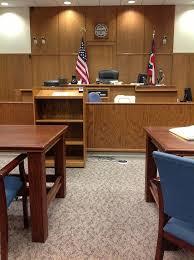When you receive a traffic ticket, you have several options - one of which is to contest the ticket. When you want to contest the ticket, you need to do the following:
Contact the Court:
Call the Court on or before the 15th day of the ticket date and ask for an informal hearing.
You can contact the Court at:
Phone: 734.794.6750
Fax: 734.794.6753
The Court's address is:
301 E Huron Street
Ann Arbor, MI 48107
The Court's business hours are:
Monday - Friday
8:00 a.m – 4:30 p.m.
Phone Hours:
Monday - Friday
8:30 a.m – 4:30 p.m.
Closure Notice:
The Traffic/Criminal Division closes at 4:00 p.m. on the first Tuesday of the month.
Once you have a court date, please note the following:
Preparing for Your Court Date:
- Know that the informal hearing will include yourself, the police officer, and the magistrate. Attorneys are not allowed at informal hearings.
- Dress neatly and appropriately - first impressions count (women - blouse/shirt with dress slacks or a skirt; men - collared shirt with dress slacks)
- You may prepare a drawing or show photographs of the area to visually demonstrate your actions.
- Take a copy of the ordinance (Search for “Ann Arbor Code of Ordinances” on the internet.)
- Prepare your argument. Your argument should show that you did not violate the ordinance (for example, the light was yellow and not red, when you entered the intersection). Tip: practice this presentation ahead of time, making a concise argument, with your directions properly memorized; bring notes with you if necessary.
Going to Court:
- Leave your cellphones at home. Non-attorneys are not permitted to have their cellphones in the court.
- Go early to provide sufficient time to go through security.
- Find the police officer in the hallway or courtroom.
- Give your prepared story to the police officer politely, but firmly, explaining your perspective of what happened.
- Ask the police officer if he or she is willing to amend the ticket to a lesser offense (less costs and/or points).
- Remember to be polite and remain calm, as being confrontational with the court or police officer will generally not help your cause.
- If the police officer says okay, and you accept, you will formalize the agreement in the courtroom, before the magistrate.
- If the police officer says no, then wait for your case to be called.
- You may then make your argument to the magistrate. You may also ask the police officer questions (for example, “Was anything obstructing your view of my vehicle?” “Were there other cars in the area that may have affected the radar?” “Was the radar properly calibrated?”) If the ticket involves failure to stop or obey a sign, you can question the ability to view the sign and not much else. After your presentation, you may ask the magistrate for a dismissal or reduction in fines. After listening to both your story and the police officer’s story, the magistrate will then make a ruling.
- If the magistrate does not rule in your favor, you may then request for a formal hearing before a judge. You can have an attorney at a formal hearing. However, again, SLS attorneys do not represent students in traffic ticket cases.
If you prevail on your traffic ticket case, please report back to Student Legal Services. Your strategies may be helpful to other students!
Note: If the police officer does not show up, ask for a dismissal of your case. It may be dismissed or rescheduled by the magistrate. However, Ann Arbor Police Officers appear almost all of the time.

